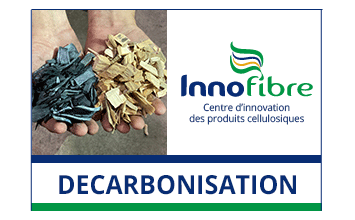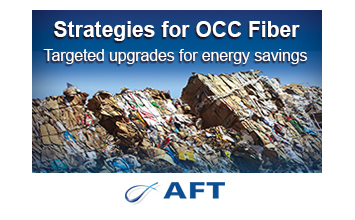Canadian Kraft Paper (CKP) initiated an innovative project that holds promise for local agriculture and redefines how we think about waste.
The Biosolids Landspreading Pilot Project began in 2017 with a straightforward goal: to test the impact of biosolids on soil health and reduce waste to CKP’s onsite landfill.
What are biosolids? These organic byproducts are a result of the kraft paper production. Biosolids consist of the leftover feedstock from the CKP wastewater treatment system. The primary biosolids used in the trial project come from the treatment system’s settling basin, the secondary biosolids from the aerated stabilization basin (lagoon).
From 2017 to 2023, Manitoba Environment and Climate gave CKP approval to spread these biosolids on various barren locations on the mill’s industrial site, ranging from gravel areas to capped landfills. The project compared several applications, including primary biosolids, secondary biosolids, a mixture of both and most recently a mixture including lime mud.
The results from all applications were impressive. After seeding the treated areas around the CKP site, vegetation flourished, and the soil was able to retain moisture even during dry conditions. Furthermore, the biosolids themselves were successfully deferred from their usual disposal in the landfill. This onsite trial provided the data that Manitoba Environment and Climate needed to approve the next step for CKP: testing the impact of these organic residuals on the soil health and crop productivity on agricultural land. This application has been successfully implemented by other pulp and paper mills across Canada.
In June 2023, a landspreading trial began on the agricultural land of Edith and Shawn Sexsmith’s Round the Bend Farm (RTBF) in Carrot Valley. In collaboration with the Pulp and Paper Institute at University of Toronto (UofT), CKP successfully applied for the Mitacs Accelerate Fellowship, a program which provides paid internship opportunities for post-Doctoral research scientists. Emmanuel Badewa was brought on board forthis 2-year project that aims to examine beneficial end uses for the organic and mineral residuals left behind after CKP’s wastewater treatment process.
Similar to CKP’s on-site pilot project, the agricultural landspreading trial compares different applications of biosolids from the CKP wastewater system on 48 controlled plots of wheat and canola. The trials involve careful analysis of best agronomic rates, soil health, biosolids' compatibility with current farming methods, and the quality and quantity of vegetation.
In early August, Edith and Shawn Sexsmith hosted an event at RTBF to showcase the results of the project thus far. In attendance were employees from CKP, Emmanuel Badewa post-Doc, Niko DeMartini of UofT, Nate Basiliko of Lakehead University, and several local farmers. Positive results of the agricultural trial can already be observed, fueling optimism for the future, and boosting local farming potential. Larger scale agricultural trials are being planned for 2024 to expand on the research, continuing to collaborate with Mitacs and UofT.
With the introduction of projects like the landspreading trials and the decarbonization prefeasibility study announced earlier this year, CKP continues to incorporate environmentally conscious practices. Focusing on sustainability and growth, CKP is leading the way toward a greener future and more robust economy for the North.
Source: Canadian Kraft Paper













